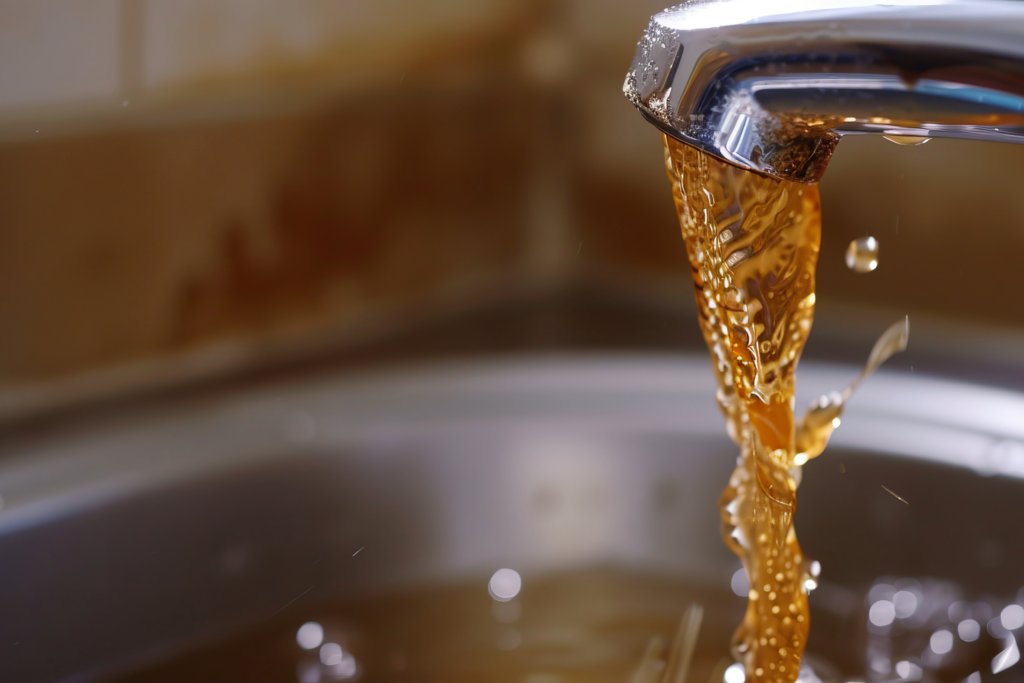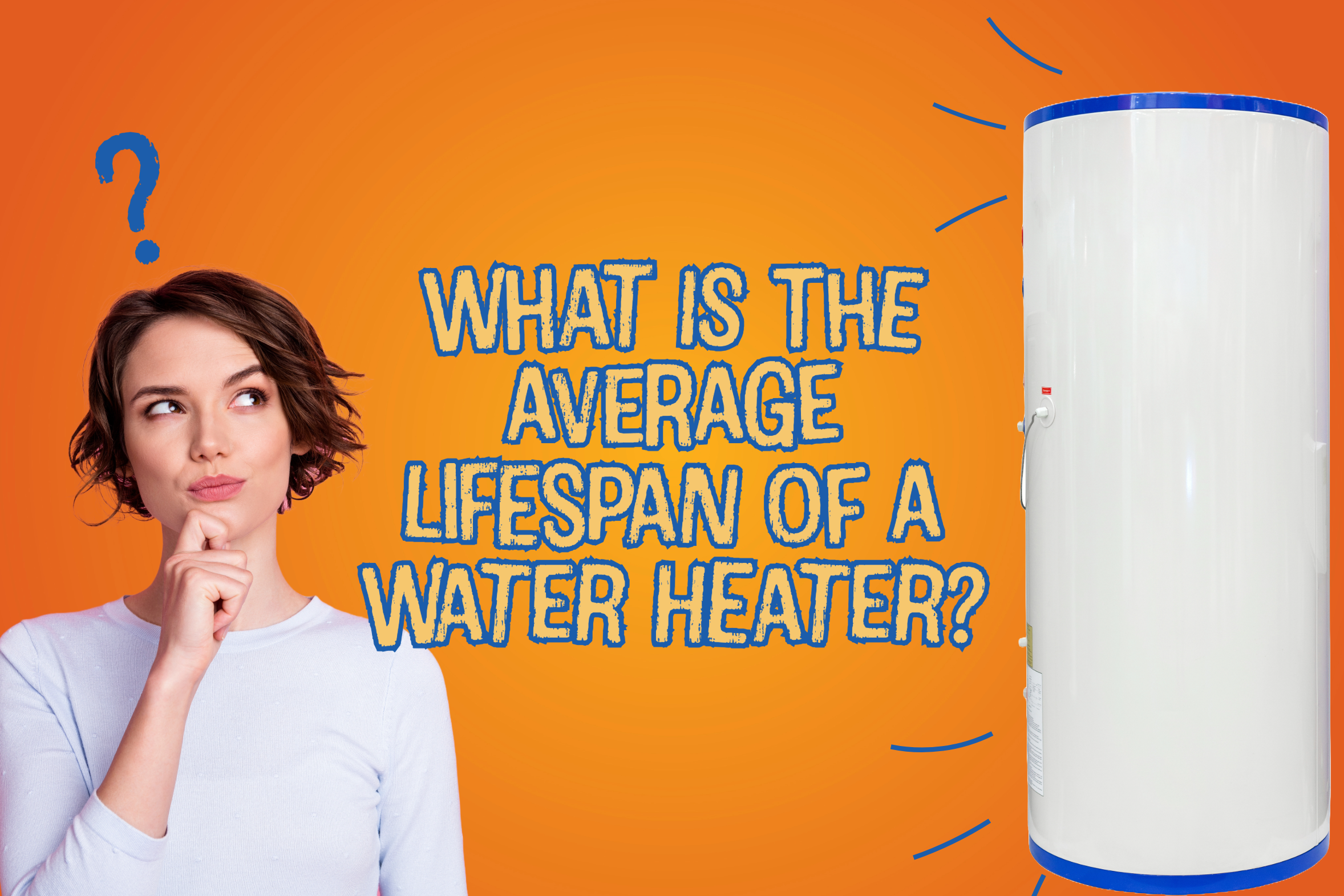Got water heater issues? You’re in the right place! We know how overwhelming it can be, especially if this is your first time dealing with it. As your trusted local plumbing partner, we’re here to help. Sometimes, it’s tough to know the right questions to ask about your water heater. Should you repair or replace it? When should you start planning for a new one? There’s a lot to learn, but that’s where Loveland Plumbing & Drain comes in! Let’s kick things off with the basics: “How long should my water heater last?”
How Long Does a Water Heater Typically Last?
To put it simply, the general rule of thumb for a water heater’s lifespan is about 8 years. Some might last a bit longer, typically between 8 and 10 years. If your water heater is a decade old or more, it’s likely nearing the end of its life and running on borrowed time. In this scenario, planning ahead is crucial to avoid unexpected surprises. (After all, no one likes a cold shower out of nowhere!) Stay ahead of the game and avoid being caught off guard!
How Do Some Factors Impact a Water Heater Lifespan?
Keep in mind that several factors can affect the longevity of your water heater. Understanding these elements can help you maintain your unit more effectively and proactively.
- Water Usage: How much water you use plays a significant role in your heater’s lifespan. While reducing water usage isn’t always necessary, being aware of this can help you make informed decisions.
- Preventative Maintenance: Regular maintenance is key to long-term success. Skipping annual checkups and essential flushes can speed up wear and tear. Stay on top of your maintenance schedule to keep your heater running smoothly.
- Water Quality: Minerals like calcium and magnesium in hard or soft water can cause buildup, affecting both efficiency and lifespan. Regular checks can help manage this.
- Installation Quality: Improper installation can lead to quicker wear and tear, potential damage, and serious safety hazards. Always hire licensed professionals who understand the nuances of installation and maintenance.
- Equipment Quality: Opting for cheaper, subpar brands might save money upfront but won’t deliver in the long run. High-quality tanks and heating elements are crucial for optimal performance and longevity. Investing in top-notch equipment is always worth it!
How Do You Know What Signals to Watch Out for That May Show You Need to Replace Your Water Heater?

- Rusty Water – Spotting discolored or rusty water flowing from your faucets? It’s a telltale sign your water heater might be on its last legs. If the water has a metallic odor or taste, it’s time to start considering a replacement.
- Lukewarm Performance – Is your water heater struggling to meet your hot water needs? This could be due to sediment buildup or general wear and tear. In such cases, a replacement might be the best solution to ensure a steady supply of hot water.
- Leaky Situations – Notice water pooling around the base of your water heater? Leaks are typically a clear indicator that something’s wrong. You should always get a professional to diagnose the issue immediately; you might need a new unit depending on the problem’s source.
- Over the Hill – If your water heater is over 10 years old, it’s probably time to start thinking about a new one. Age is a significant factor in determining whether to replace your unit, and a new, energy-efficient model could be a wise investment.
- Frequent Fixes – Are you constantly repairing your water heater? Multiple repairs can become costlier than the unit itself. Instead of pouring money into endless fixes, consider upgrading to a top-rated, energy-efficient water heater that offers better value and performance in the long run.
How Do You Know What Maintenance Tips to Enforce to Prolong Your Water Heater’s Lifespan?
Since water heating accounts for roughly 18% of a household’s energy expenses, it’s crucial to keep your water heater up to date and running smoothly. By sticking to regular maintenance, you can ensure your water heater operates at its peak performance and lasts as long as possible. Here’s how you can maximize its efficiency and lifespan:
- Flush Your Water Heater Regularly: Sediment buildup can lead to overheating and other issues, shortening your unit’s lifespan and resulting in costly repairs. Regularly flushing out this sediment ensures optimal performance and longevity.
- Avoid High Water Temperatures: Setting your water heater to excessively high temperatures can wear it down faster. Keep the temperature in check to protect your appliance and maximize its efficiency and value.
- Prevent Rust Buildup on the Exterior: Rust on the outside of your unit can drastically reduce its efficiency and lifespan. Address this issue promptly to maintain optimal performance.
- Stay Up to Date with Annual Maintenance: Don’t skip your annual plumbing inspections! These checkups ensure everything runs smoothly. A licensed plumber can catch minor issues before they become major problems, helping you avoid potential plumbing disasters.

Keeping track of your water heater’s age is smart so you can plan ahead for replacements. Need help figuring out its age or want a free water heater estimate? No worries, we’ve got you covered! Whatever your question or plumbing concern is, we’re here to help!
You can count on Loveland Plumbing & Drain today at (513) 644-0556, or schedule an appointment now by clicking here!

